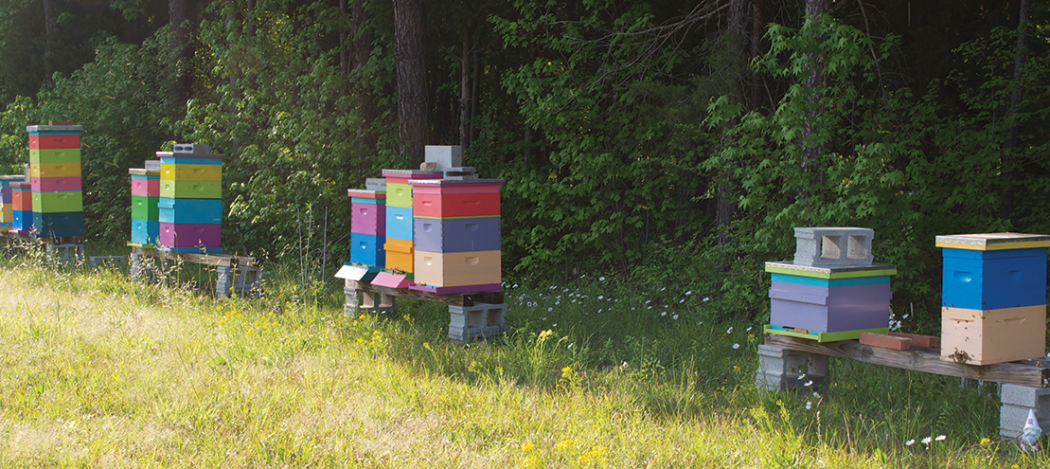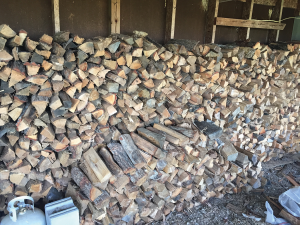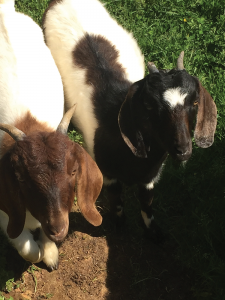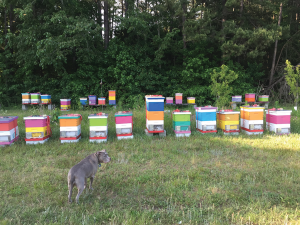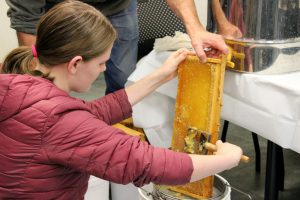A Survivalist Guide To Bees
A lot of insanity has been going on in the country with elections, unrest, and political/cultural divides that, at least to me, are highlighting the benefits of a more self-reliant lifestyle. While “homesteader” is a popular word that’s trendy in today’s lingo, the word “prepper” seems to indicate a negative mindset towards worst-case scenarios and insane tendencies. For those of you that have been reading my articles for a few years, you may remember when I wrote about canning and how my grandparents were what I would consider the “OP”s, or Original Preppers, because that’s what that era forced you to be when you lived in the country. It wasn’t weird back then, just a smart way of life. I have a lot of fond memories doing things their way, mostly ending in super delicious food, but make no mistake that I will go kicking and screaming into whatever type of downfall that forces me into not being able to shop on the internet and renders my precious shoe collection worthless. That being said, being prepared for the short term is just a good idea. Whether or not you believe that government collapse or economic collapse is eminent, there are always natural event disasters like we here in NC have recently faced with Hurricane Matthew, or even the busted gas pipeline down south that caused such a panic up the east coast.
Well thought out planning is key to making these situations livable. If you’ve ever had an ice storm knock out your power for a few days, you learn quickly what you wish you’d had. If you’ve ever had an ice storm knock out your power for a few days and had kids in the house, you might choose freezing to death over staying inside if they don’t have something to occupy them. Now, bear with me that if I could build an isolated fortress out in the woods on a hundred acres with a 10-foot razor wire fence, spring fed pond, multi-level underground house running on solar power, and a giant bio dome over the entire thing, I would. Driving in traffic every day makes me think that’s the best option. However, these people who go all-out self-sustaining have a lot of expendable income in the first place, a lot of mechanical skills, a whole lot of help from family and friends, or all three. Sometimes planning means doing what you can to prepare for the future while still maintaining in the here and now. Those solar panels will have to wait because the hot water heater just exploded and the transmission went out in the car. You want to dig a new well with a hand pump, but your old well just had the electric pump go out and you have to fix that first. There are a lot of obstacles in planning for the future. What you can do, however, is do what you can on your own scale that you feel comfortable with.
Now, if you’re already reading this, you probably have bees or you’re strongly thinking about it. Bees are a fantastic option to start small for homesteading, prepping, or short term planning. There are a ton of benefits to bees if you can keep them alive. First thing’s first on the list is preparing yourself for beekeeping. That includes understanding the best management for your hives in the long term and being able to handle it without intervention. Bees have Varroa mites, and there’s not really any way around that. Bees can have a lot of influences on their well-being, but none of them are so critical to their survival as effective control of Varroa in the hive. You need to be able to understand all the methods of Varroa control and test them out to see what does and does not work for your time and skills. In theory, you could manually control Varroa with intensive management, such as putting bees on new frames each year, killing drones at the beginning of the year, killing capped brood for a few cycles in the spring, and sugar shaking frequently. In practice, I don’t have time for that kind of coddling and I love me some Apiguard. That being said, I do like to pre-buy my Apiguard if I have a good place to store it so I have it on hand if I need it, and I’m not fighting with all the other beekeepers to get what I need at the same time of year.
You also want to make sure that you have enough colonies to be able to manipulate them as necessary. When you start beekeeping, everyone will tell you that you need two hives minimum so you can compare the health, and swap frames to equalize as necessary. You want to have enough colonies that you can combine hives in the winter if you need to, you can swap out brood frames to prevent swarming or boost a colony, and to be able to harvest from the hive without destroying your apiary. Moneywise, bees are somewhat expensive, but not when compared to other livestock that may be encountered in homesteading. If I had the space and time, there would be baby goats running all over our property like tiny little destruction demon fairies, but Bobby keeps telling me that we have enough destruction demon fairies (the kids, as in children not goat kids) to take care of and don’t need goats. Goats are a lot more expensive and time consuming than bees, but also give milk for so many uses, and I guess you could eat them but I think goat meat is gross.
Chickens and guineas are not super expensive, but you have to stay vigilant for intruders who think you’ve set them up a drive-thru of nuggets and can be very costly if you break your ankle running through your yard at 4 am with a flashlight and a gun to see what’s bothering your chickens. You may end up getting a dog to guard them, or putting up an electric fence.
Bees only require mostly the initial setup costs, and don’t really take a lot of maintenance time. That’s not to say they can’t if you want to spend a little more time with them. You can do a bit of hands-off beekeeping and only intervene when necessary, or maybe you want to take out each frame, meticulously clean off the burr comb, straighten everything out, and take pictures of the frames. It’s up to you. I would estimate that I spend less than three hours a year per hive in maintenance, and most of that is varroacide and splitting (I suppose also photography when I get carried away).
For homesteading and prepping, bees can provide immense benefits. The obvious one is garden pollination. Although you can purchase a Veggie Bee if you really want to hand-pollinate your garden, I prefer to leave it to the bees. If you’re only growing nightshades like tomatoes and peppers, you’re reliant on the local bumble bee population anyway. If you have lots of cucurbits and orchards, you’re going to want the honey bees en masse stuffing their little faces in those flowers. It can really boost a production rate just to have bees in the vicinity. Separately for cost, it doesn’t hurt to plant as many pollinator-friendly plants and flowers as possible anywhere you have space to attract the local pollinator force to your place. You can see the difference, although it may take a year or two.
Honey is the other most obvious output from bees. It can be used in canning for sweetener instead of sugar, particularly if you don’t have any sugar available. I’d suggest trying out this tactic before it’s a necessity to make sure you understand how the different types of honeys can influence the taste of jams and jellies and so forth. Honey also has great antibacterial properties, and can be used on cuts and scrapes to keep them from getting infected. I have used this multiple times not only on myself but also on the animals and it seems to work well. It’s particularly good for idiot cats and dogs who think they need to lick a wound and get gross bacteria in it, or end up frothing at the mouth from eating chemicals in a normal medicated ointment. Whoever told you dogs have clean mouths lied to you and needs to take a science class. NOTHING about that is true. They can easily infect their cuts by licking them.
Speaking of ointments, propolis also has a lot of very cool antibacterial properties, and I have personally used it as an alcohol tincture on cuts and scrapes, and made it for other people with boils or other similar problems, and it is fantastic. It’s good to know what you have readily available. Honey is also great for teas and drink sweeteners, as well as using them for people with allergies and sniffles in general. I don’t have allergies personally, but I can say that a lot of people swear by local honey for allergy problems. It doesn’t get much more local than your yard.
If electricity becomes an issue, candles on hand are the way to go. Batteries only last so long and flashlights are more of an emergency thing. Beeswax candles can’t be beat for longevity and scent. This is something that would have to be done in advance, so learning about candle making should be a priority when possible.
Of course, all of these things are also money makers. You can sell or barter honey, pollination services, candles, propolis, and even pollen as a source of income. A caveat on pollen is that pollen baskets are not readily digestible by humans and aren’t going to help you out nutritionally in the long run. They are basically coated in shellac and is kind of like when you eat corn, if you get my drift. Overall, the goal here is to be prepared for events with the items you have on hand, and knowing how to use them in the most effective way. If you’re raising bees, it’s in your best interest to find out how to best use them to your benefit. After all, it’s your time and money!
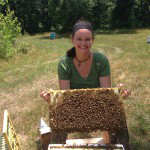 Jennifer Louque, her family and pets are prepared for Winter in NC.
Jennifer Louque, her family and pets are prepared for Winter in NC.






